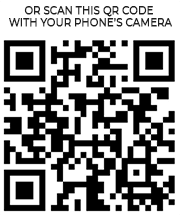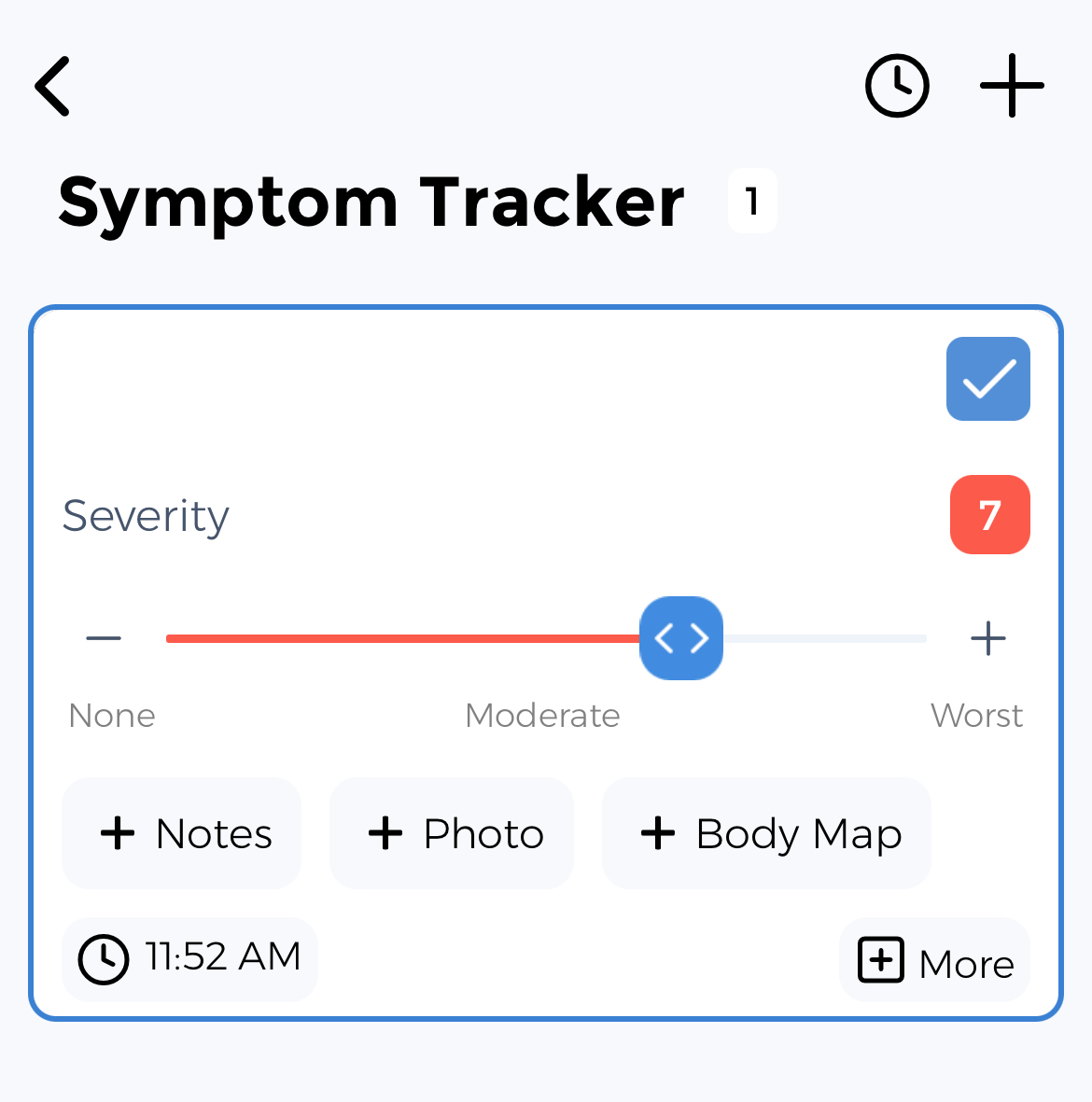Emphysema Symptom Tracker: Your Health Assistant
Living with Emphysema means dealing with shortness of breath, chronic cough, wheezing, and more. But here's the truth: Data is your most powerful tool. Every logged symptom reveals patterns—so you can take informed action.
Emphysema is a progressive lung disease that causes destruction of the air sacs (alveoli) in the lungs, leading to reduced oxygen absorption and trapped air. It's primarily caused by smoking or long-term exposure to airborne irritants. Tracking respiratory symptoms and triggers helps manage the condition and improve quality of life.
Key Emphysema Symptoms You Should Track
Struggling with symptoms like these? Tracking them reveals patterns, triggers, and how they impact your daily life.
Shortness of breath
Chronic cough
Wheezing
Chest tightness
Reduced exercise tolerance
Fatigue
Weight loss
Barrel chest
Pursed lip breathing
Use of accessory breathing muscles
Bluish discoloration of lips/fingernails
Frequent respiratory infections
Track Your Emphysema Treatments
Tracking how these common treatments affect your symptoms can help you and your healthcare provider optimize your care plan:
Our tracker helps you monitor when you take medications and how they affect your symptoms over time.
Standardized Emphysema Assessments
Complete these evidence-based assessments in the App to measure your severity and monitor your progress:
⚡ Knowledge Is Your Superpower
The difference between feeling overwhelmed by Emphysema and feeling in control starts with data. When you track your symptoms, you transform uncertainty into clarity. Every data point brings you closer to understanding your unique patterns.
It's free to try for anyone—whether you're managing your own condition, supporting a child, helping an aging parent, or assisting a partner. Our tracker adapts to your specific role in the health journey.
How the CareClinic Emphysema Symptom Tracker Adapts to Your Needs
Adults
Caregivers
Parents of Children
Young Adults
Your Complete Emphysema Management Toolkit
Uncover Patterns & Insights
Map your Emphysema symptoms like a detective solving a case.
Understand Your Medication's Impact
Turn guesswork into strategy. See how treatments affect your well-being with clear health insights.
Objectively Measure Your Progress
Use clinically validated tools to objectively measure your progress.
Other Tools You May Like...
Plus 6 more specialized tracking tools available
Access All Tracking ToolsAlso Supports Other Conditions Like
Chronic Bronchitis Tracker
Chronic Bronchitis warriors use our tracker to monitor persistent cough, mucus production.
COPD Tracker
COPD warriors use our tracker to monitor shortness of breath, chronic cough.
Alpha-1 Antitrypsin Deficiency Tracker
Alpha-1 Antitrypsin Deficiency warriors use our tracker to monitor shortness of breath, wheezing.
Asthma Tracker
Asthma warriors use our tracker to monitor wheezing, shortness of breath.
Success Stories from Our Community
"After my diagnosis with Emphysema, I felt lost. This tracker became my guide. What I thought was frequent respiratory infections was actually related to weather changes, and that knowledge alone made a huge difference."
"This tracker helped me see my Emphysema in a whole new way. I could predict when use of accessory breathing muscles would flare up - something I never would have realized without keeping consistent records."
Take Control of Your Emphysema Journey
Transform from feeling like a passive patient to becoming an informed self-advocate. Join thousands who've discovered new insights about their condition.
Designed by people who understand the daily challenges of managing chronic conditions, we're here to support you and your ❤️ ones.
Download Your Emphysema Tracker NowYour Data is Protected
Private & Secure
HIPAA Compliant
GDPR Compliant
Never Sell Data
Your data is yours: You get full control over who can view your information. CareClinic keeps all your data secure and encrypted.
References based on studies by:

